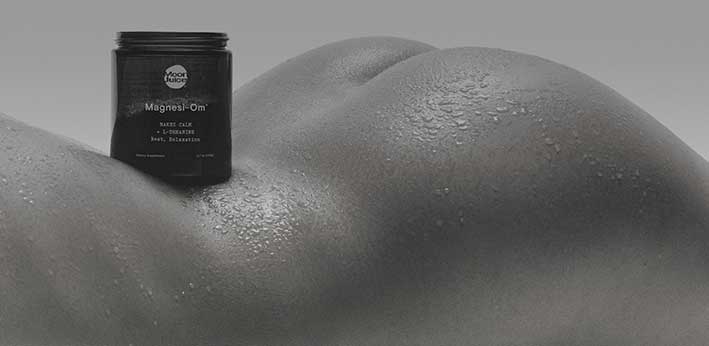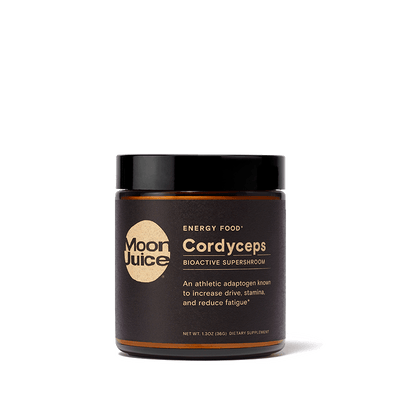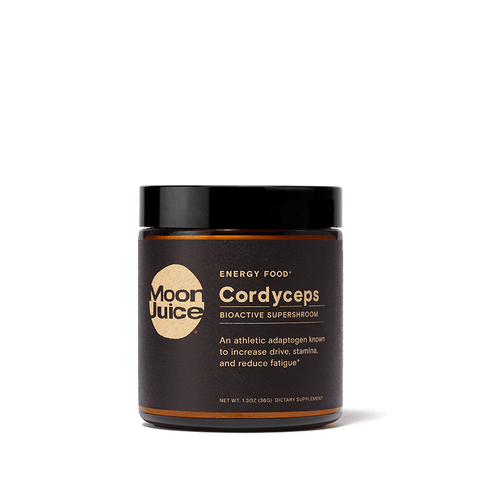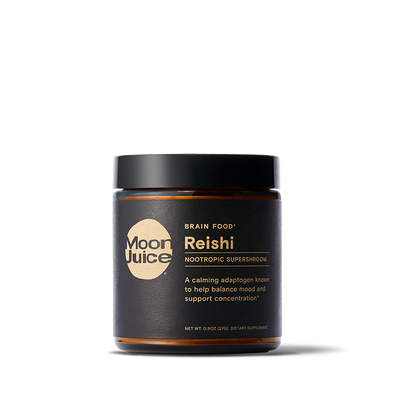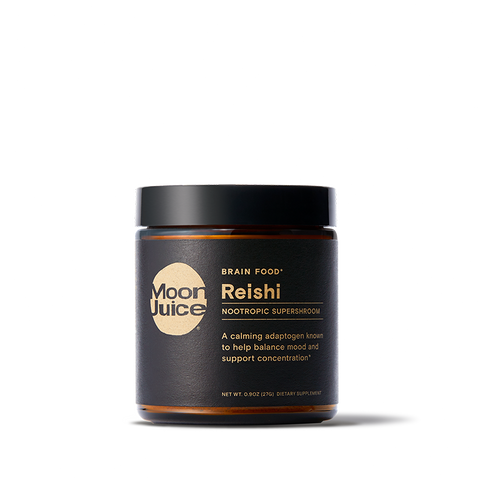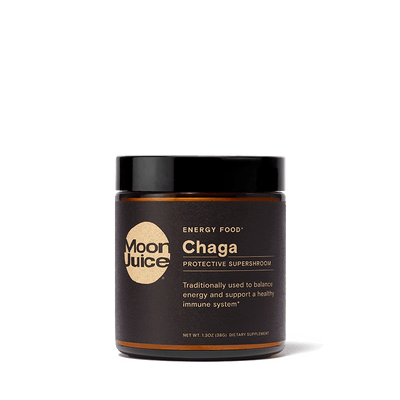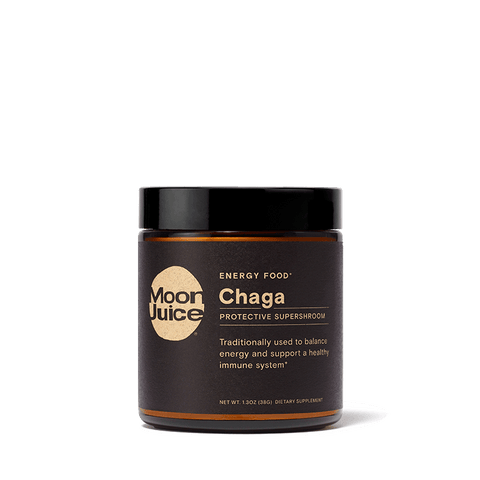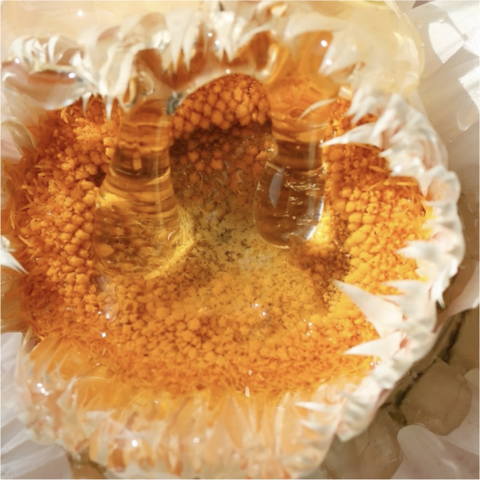Is there anything mushrooms can’t do? From mushroom jerky to mycelium leather, psychedelics to nootropics, eco-friendly building materials, natural composters, and adaptogenic, medicinal, and culinary tools, mushrooms are like living gifts that provide us with ancient answers to so much in the modern world.
Healthwise, functional mushrooms have long been revered in traditional wisdom, and today’s clinical science is beginning to close the gap. If you’re interested in incorporating functional fungi into your wellness routine, consider this your 101 guide to everything you need to know about functional mushroom benefits and more.
What Are Functional Mushrooms?
Not all mushrooms share the same properties. Some mushroom varieties are poisonous and even deadly, while others are famous for their psychedelic effects or hunted for gourmet purposes. Functional mushrooms are safe, ingestible mushrooms that boast an impressive array of health benefits beyond just providing your body with nutrients.
Benefits of Functional Mushrooms
Many functional mushrooms are considered potent adaptogens, meaning they help your body heal from and ward off the damaging effects of stress. Though they’ve been used for centuries in practices like Ayurveda and traditional Chinese medicine, the term “adaptogen” came about in 1961 by Dr. I. I. Brekhman, who concluded that these nontoxic plants could help the body adapt to stress on a cellular level to support the body’s homeostasis.
Adaptogens work through two master pathways: the HPA axis (the hypothalamic-pituitary-adrenal axis), which controls your endocrine, nervous, and some immune function, and the SAS (sympathoadrenal system), aka our fight-or-flight response. Adaptogenic mushrooms don’t get rid of stress—rather, they help your body cope with stress in all its forms.
In addition to adaptogenic potential, functional mushrooms have many additional benefits, like skin-loving hydration in silver ear mushrooms, or cognitive function benefits in lion’s mane.
Many of these mushrooms are packed with potent polysaccharides called beta-glucans, a type of fiber that support gut and metabolic health. These heart-healthy beta-glucans can help reduce blood pressure, lower cholesterol, and activate immune response.
Functional mushrooms also often contain other bioactive compounds like antioxidants that help fight the oxidative stress in your body that can lead to cell and DNA damage and contribute to the effects of aging.
They’re also often rich in much-needed vitamins like B vitamins and vitamin K, as well as trace minerals like selenium, copper, phosphorous, and potassium, all of which are vital for overall health. Importantly, mushrooms are the only produce-based source of bioavailable vitamin D, which many of us don’t get enough of in our diets.
Types of Functional Mushrooms
Ask any amateur mycologist, and they’ll tell you that there’s no limit to the functional mushroom varieties you can find. Here are some of the most popular medicinal mushrooms commonly used in traditional practices and modern supplements.
Reishi
Found on trees in the United States, Asia, and parts of the Amazon, the Reishi mushroom has been crowned queen healer by traditional Chinese herbalists, as it’s believed to support longevity and overall health. Its reputation as a brain nourisher, immune supporter, stress reliever, and beauty food make it a popular addition in wellness supplements.
This super mushroom is a calming adaptogen and nootropic known to balance mood and support concentration. Though research remains in its early stages, a 2021 review of the science found that Reishi benefits a wide range of ailments. A 2017 study also found that polysaccharides in Reishi had neuroprotective and antioxidant effects.
Reishi is packed with skin-loving antioxidants and immune-balancing nutrients, containing vitamins C, D, and E, as well as ample B vitamins and beta carotene, a plant pigment that is beneficial for eye health. Moon Juice Reishi mushroom powder also contains 700 mg of 1,3 and 1,6 beta-glucans. Learn how to use this Reishi mushroom powder to experience its multitude of benefits.
Cordyceps
Cordyceps were traditionally gathered from the Himalayas in Bhutan and Tibet, as a fungus growing out of a caterpillar. In traditional Chinese medicine, the mushroom and the worm were used together, but now the vast majority of Cordyceps mushrooms are cultivated without the worm, dried in the sun, and then ground into powder. They’re a key adaptogen in traditional use, helping the body handle stress and support immune response.
The pharmacological and biological constituents of cordyceps bump energy and stamina while encouraging healthy lung capacity. Thanks to their potential to reduce exercise fatigue and improve exercise performance, you’ll often find them included in workout supplements. In fact, many believe the best time to take cordyceps is in the morning or before a workout to support energy levels. Traditionally called “Himalayan Viagra,” these functional mushrooms are also known to increase libido naturally in both men and women.
Cordyceps contain ample protein, vitamin K, and B vitamins like B1, B2, and B12, to support energy and health. Moon Juice Cordyceps powder has 250mg of 1,3 and 1,6 beta-glucans per serving.
Lion’s Mane
Lion’s mane mushrooms are a shaggy white fungi well known in the holistic supplement space for their propensity to nourish brain health thanks to their neurotrophic and neuroprotective properties. Research shows that lion’s mane contains hericenones and erinacines, two bioactive compounds that can stimulate the growth of brain cells. Lion’s mane is associated not only with the growth of neurons, which send and receive information in your brain, but also with a healthy inflammatory response in the brain and throughout the body.
In terms of nutrients, lion’s mane provides B vitamins as well as minerals like zinc, potassium, and iron, as well as beta-glucan, supporting healthy immune balance, electrolyte balance, gut health, energy, red blood cell creation and more.
Chaga
Found growing on the bark of birch trees in frigid climes like Siberia and Alaska, chaga mushrooms resemble a hunk of burnt charcoal, but with a soft orange core. Chaga mushrooms are traditionally used to support a healthy immune system. They’re also known to balance energy, help reduce fatigue, and increase mental sharpness. Research shows chaga can support your brain health and gut microbiota.
Chaga mushroom powder is high in antioxidant properties and beta-glucans. Moon Juice chaga contains 240mg of 1,3 and 1,6 beta-glucans per serving.
Turkey Tail
Common across the world, the turkey tail mushroom is one of the most prolific mushrooms found in North America, recognizable by their tail-like fanned shapes with dark striations. These mushrooms are particularly high in beta-glucans, and they also contain vitamin D as well as B vitamins.
The turkey tail mushroom is packed with antioxidants like phenols and flavonoids. A 2017 study even found 35 different phenolic compounds in a sample of the extract. Thanks to this presence of antioxidants and bioactives, turkey tail is considered to be beneficial in reducing oxidative stress and supporting a healthy inflammatory response. Turkey tail mushrooms may generally be beneficial for helping balance your immune system.
Shiitake
Native to Asia, shiitake mushrooms are widely used for their rich, savory flavor and numerous health benefits. Packed with vitamins, minerals, and antioxidants, they may help boost the immune system, support a healthy inflammatory response, and nourish heart health. They’re a good source of B’s, particularly B5 and B6, which play essential roles in energy metabolism and cognitive function. Shiitakes also contain minerals like copper, selenium, and zinc, important for immune balance and overall health.
Maitake
Also called “hen of the woods,” maitake mushrooms are sourced for their unique flavor and nutritional value. They’re rich in antioxidants and micronutrients that support overall wellness and longevity, like B vitamins, which are vital for energy production, skin health, and neurological function. 1 cup of hen of the woods mushrooms also provides 196% of your daily value for vitamin D, which many people don’t get enough of.
They also contain minerals like potassium, essential for heart health and muscle function, and copper, necessary for iron absorption and collagen production. Maitakes also contain those beautiful beta-glucans, which may help lower cholesterol and support healthy blood sugar levels.
King Trumpet
Also known as King Oyster mushrooms, King Trumpet mushrooms are known for their meaty texture and rich umami flavor. They contain high levels of an amino acid called ergothioneine, which our bodies can’t create on their own. King Trumpets also provide B vitamins biotin, niacin, and riboflavin, important for converting food into energy and maintaining healthy skin. They’re also rich in minerals like potassium, which helps regulate blood pressure, and phosphorus, essential for bone health and energy production.
Agarikon
These rare “elixir of life” mushrooms are found in old growth forests primarily in North America and Europe. Once used by the ancient Greeks, they’re highly prized for their medicinal potential and strong antiviral activity. Agarikon mushrooms remain largely elusive but are being studied for antiviral, antimicrobial, and immunomodulating effects.
Tremella
Also known as silver ear mushroom, snow fungus, white mushroom, or white fungus, tremella mushrooms have a snowy, translucent color and jelly-like texture. Traditionally used in Chinese medicine to promote health and longevity, this beauty mushroom commonly grows in Asia but can be found in a range of tropical climates.
In addition to its antioxidant properties and potential to support inflammatory balance, the impressive polysaccharides in silver ear mushrooms may also help improve brain and skin health. A 2018 study of 75 people found that those who consumed 600 mg or 1,200mg of a white fungus supplement per day over 8 weeks showed improved memory, especially short-term memory, compared to the control.
Silver ear mushrooms can improve hydration in your skin by reducing transepidermal water loss (TEWL) and collagen degradation in the skin after sun or UV exposure. This natural moisturizer is prized in beauty applications thanks to its anti-aging properties.

How to Add Functional Mushrooms to Your Wellness Routine
Many mushrooms, such as lion’s mane, hen of the woods, and turkey tail, can be commonly found foraging if you’re after the freshest fungi. But because certain varieties of mushrooms can be highly poisonous, including some lookalikes, it’s important that you never eat a foraged mushroom without first identifying it and consulting experts.
Your local farmer’s market may have many types of mushrooms for you to experiment with in your kitchen. Culinary mushrooms like shiitake are delicious grilled or eaten in everything from soups to risottos.
But in case you’re not keen on preparing mushrooms for every meal, a 3rd-party trusted functional mushroom supplement can be a great way to be consistent with your practice.
- Cordyceps mushroom powder is a golden powder with a slightly sweet anise-y, woody flavor, pairing well with tropical fruits, citrus, ginger, chocolate, and coffee. Not sure how to use mushroom powder? Use between 1-3 teaspoons of this supplement daily.
- Reishi mushroom powder is a dark brown powder with a strong, botanical aroma and an intensely tannic taste, pairing well with chocolate and coffee. Use between 1-4 teaspoons daily. For skin-soothing hydration, find Reishi in topical applications like Cosmic Cream, a dewy moisturizer, and Acid Potion, a liquid exfoliant.
- Chaga mushroom powder is a dark, brown powder with a very mild and palatable earthy flavor. It pairs well with smoothies, lattes, coffee, and tea. Use 1 teaspoon daily.
- Silver ear mushroom makes an appearance in Collagen Protect®, a vegan collagen creamer shown to support collagen synthesis and reduce the look of fine lines. Add 1 rounded tablespoon to coffee or smoothies to promote healthy skin, and double up by using silver ear topically in Milk Cleanse, a gentle milky cleanser, and Plump Jelly,a face-plumping serum.
If you’re looking to explore more with mushrooms and adaptogens, the Moon Juice Manual and Moon Juice Cookbook are two resources for wisdom, research, and recipes like Queen Healer bread.
Takeaways
Mushrooms go way beyond what’s for dinner. Functional fungi are a powerful support to help our bodies deal with the effects of stress. They can help us enhance our workouts, soothe our inflammatory response, moisturize our skin, boost brain health, and fight oxidative damage. Packed with antioxidants, beta-glucans, and vital micronutrients, these medicinal mushroom varieties are an ancient source for nourishing our potential.
Sources
- MDPI, Clinical and Physiological Perspectives of β-Glucans: The Past, Present, and Future https://www.mdpi.com/1422-0067/18/9/1906
- National Library of Medicine, A Review of Mushrooms as a Potential Source of Dietary Vitamin D https://www.ncbi.nlm.nih.gov/pmc/articles/PMC6213178/#:~:text=Vitamin%20D%2Denhanced%20mushrooms%20are,D%20for%20vegans%20and%20vegetarians
- Wiley Online Library, Ganoderma lucidum (Reishi) an edible mushroom; a comprehensive and critical review of its nutritional, cosmeceutical, mycochemical, pharmacological, clinical, and toxicological properties https://onlinelibrary.wiley.com/doi/10.1002/ptr.7215
- National Library of Medicine, Neuroprotective effects of ganoderma lucidum polysaccharides against oxidative stress-induced neuronal apoptosis https://www.ncbi.nlm.nih.gov/pmc/articles/PMC5514871/
- MDPI, A Mechanistic Review of β-Carotene, Lutein, and Zeaxanthin in Eye Health and Disease https://www.mdpi.com/2076-3921/9/11/1046
- Begell House Digital Library, Effect of Polysaccharide from Cordyceps militaris (Ascomycetes) on Physical Fatigue Induced by Forced Swimming https://www.dl.begellhouse.com/journals/708ae68d64b17c52,57162b26264a3b98,4ad6a16757705f93.html
- jstage, Supplemental Anti-Fatigue Effects of Cordyceps Sinesis Extract Powder During Three Stepwise Exercise of Human https://www.jstage.jst.go.jp/article/jspfsm/55/Supplement/55_S145/_pdf/-char/en
- Springer Link, Randomized double-blind placebo-controlled clinical trial and assessment of fermentation product of Cordyceps sinensis (Cs-4) in enhancing aerobic capacity and respiratory function of the healthy elderly volunteers https://link.springer.com/article/10.1007/BF02836405
- National Library of Medicine, Cordyceps militaris improves tolerance to high intensity exercise after acute and chronic supplementation https://www.ncbi.nlm.nih.gov/pmc/articles/PMC5236007/
- National Library of Medicine, Lion’s Mane Mushroom, Hericium erinaceus (Bull.: Fr.) Pers. Suppresses H2O2-Induced Oxidative Damage and LPS-Induced Inflammation in HT22 Hippocampal Neurons and BV2 Microglia https://www.ncbi.nlm.nih.gov/pmc/articles/PMC6720269/
- MDPI, Lion’s Mane Mushroom, Hericium erinaceus (Bull.: Fr.) Pers. Suppresses H2O2-Induced Oxidative Damage and LPS-Induced Inflammation in HT22 Hippocampal Neurons and BV2 Microglia https://www.mdpi.com/2076-3921/8/8/261
- Wiley Online Library, Prospecting medicinal properties of Lion's mane mushroom https://onlinelibrary.wiley.com/doi/10.1111/jfbc.13833
- MDPI, A Critical Review on Health Promoting Benefits of Edible Mushrooms through Gut Microbiota https://www.mdpi.com/1422-0067/18/9/1934
- ScienceDirect, Anti-neuroinflammatory polyoxygenated lanostanoids from Chaga mushroom Inonotus obliquus https://www.sciencedirect.com/science/article/abs/pii/S0031942220312620?via%3Dihub
- National Library of Medicine, In vitro bioactivity, antimicrobial and anti-inflammatory efficacy of modified solvent evaporation assisted Trametes versicolor extract https://www.ncbi.nlm.nih.gov/pmc/articles/PMC7447717/
- National Library of Medicine, The lignicolous fungus Trametes versicolor (L.) Lloyd (1920): a promising natural source of antiradical and AChE inhibitory agents https://www.ncbi.nlm.nih.gov/pmc/articles/PMC6010034/
- FDC, Shiitake mushrooms https://fdc.nal.usda.gov/fdc-app.html#/food-details/168436/nutrients
- National Library of Medicine, Tremella polysaccharide: The molecular mechanisms of its drug action https://pubmed.ncbi.nlm.nih.gov/31030755/
- National Library of Medicine, Tremella fuciformis Polysaccharides Attenuate Oxidative Stress and Inflammation in Macrophages through miR-155 https://www.ncbi.nlm.nih.gov/pmc/articles/PMC5954968/
- National Library of Medicine, Antioxidant and anti-inflammatory activities of methanol extracts of Tremella fuciformis and its major phenolic acids https://pubmed.ncbi.nlm.nih.gov/24547933/
- Medicinal Polypores of the Forests of North America: Screening for Novel Antiviral Activity https://www.dl.begellhouse.com/journals/708ae68d64b17c52,0d0f121956dd501b,68ee03ef1a9aac59.html
- National Library of Medicine, Efficacy and Safety of Tremella fuciformis in Individuals with Subjective Cognitive Impairment: A Randomized Controlled Trial https://pubmed.ncbi.nlm.nih.gov/29319408/
- National Library of Medicine, Carboxymethylation of polysaccharides from Tremella fuciformis for antioxidant and moisture-preserving activities https://pubmed.ncbi.nlm.nih.gov/25194971/
- ScienceDirect, Effect of polysaccharides from Tremella fuciformis on UV-induced photoaging https://www.sciencedirect.com/science/article/abs/pii/S175646461500554X
